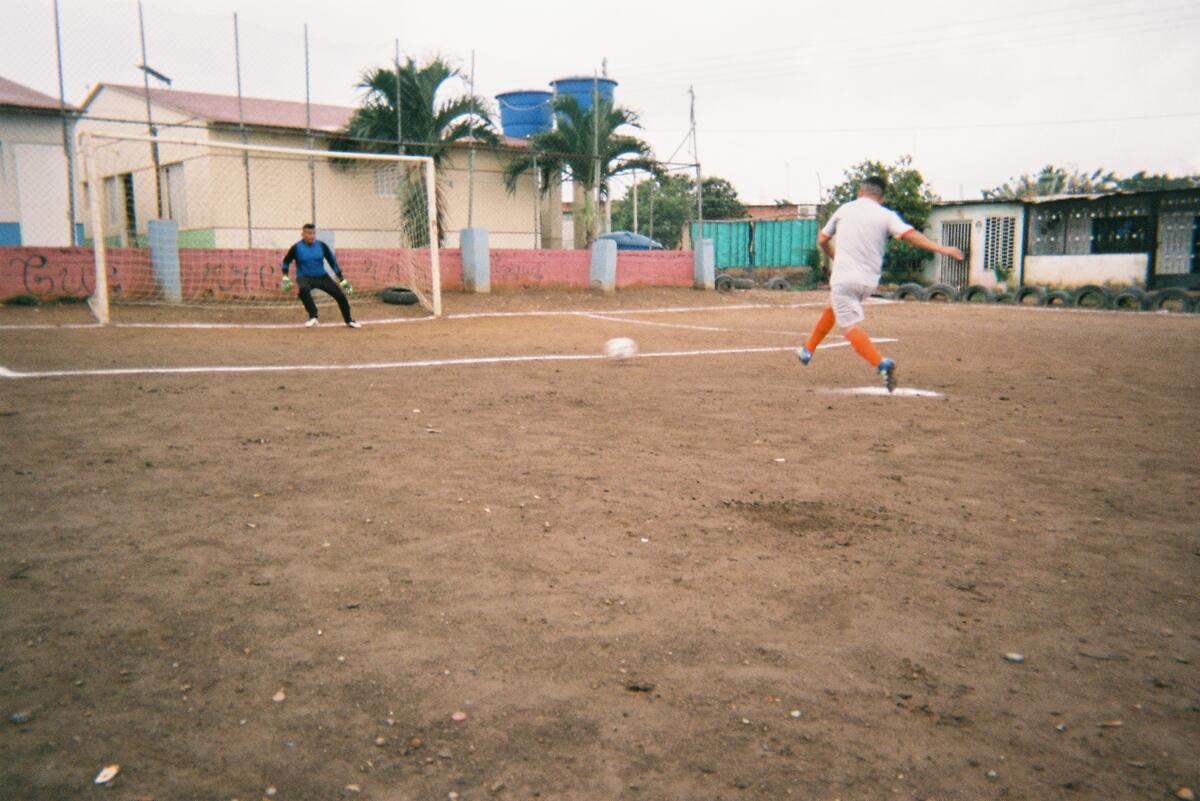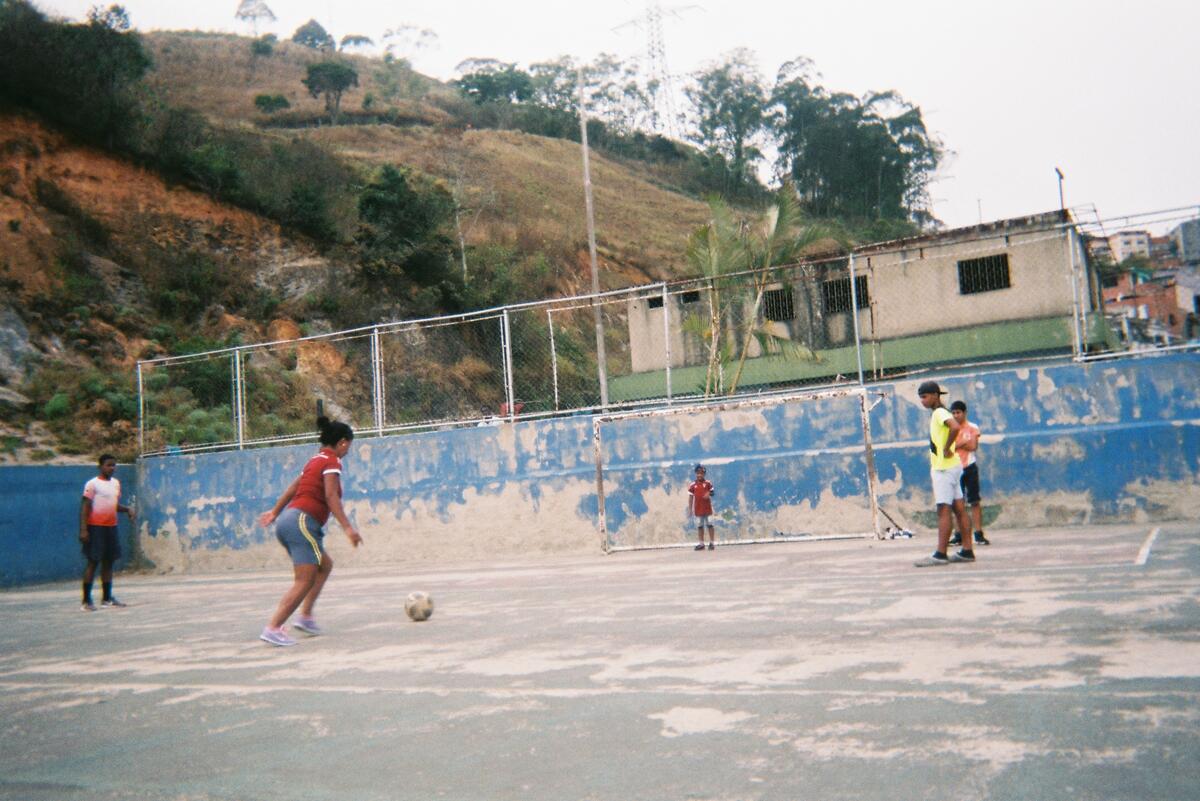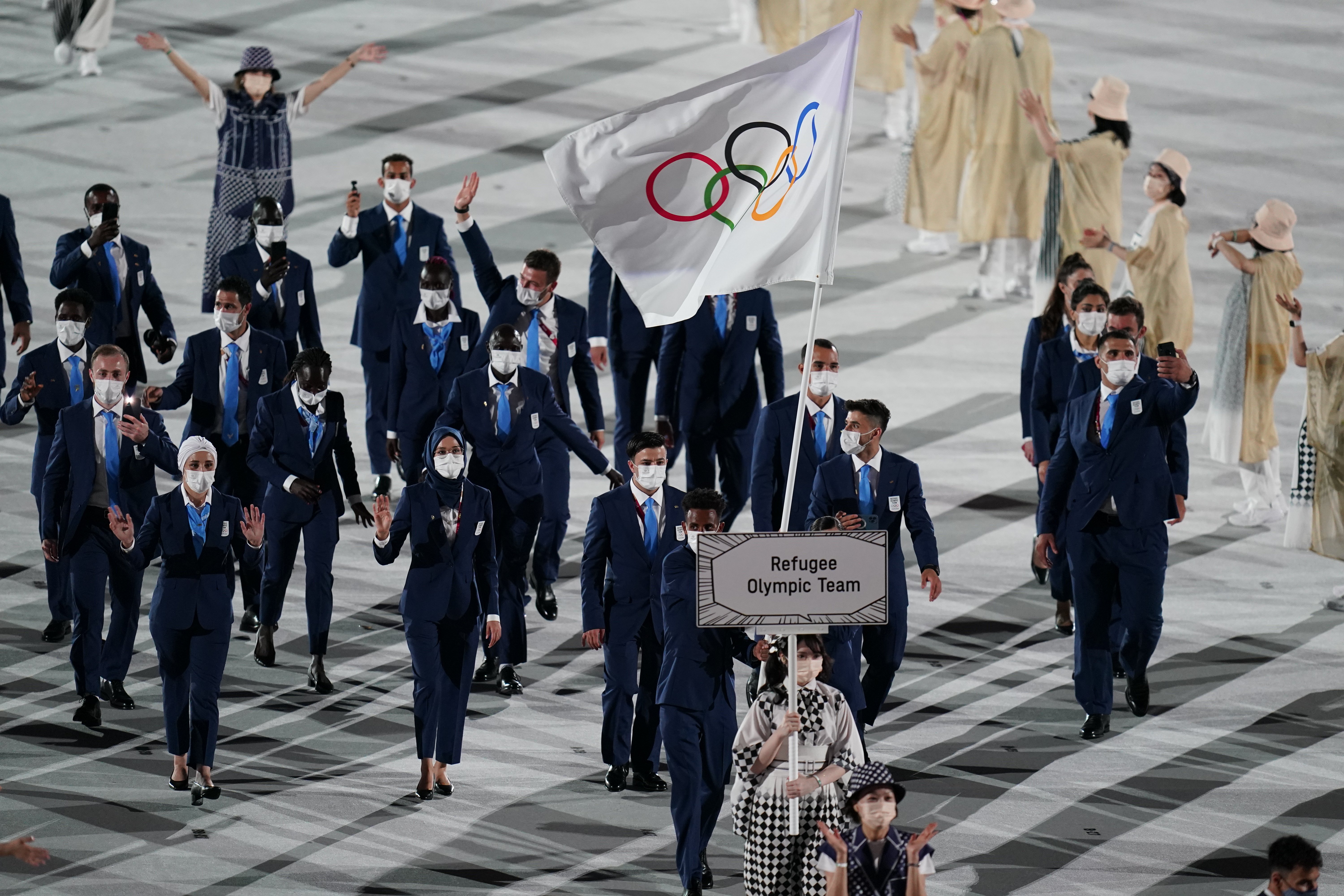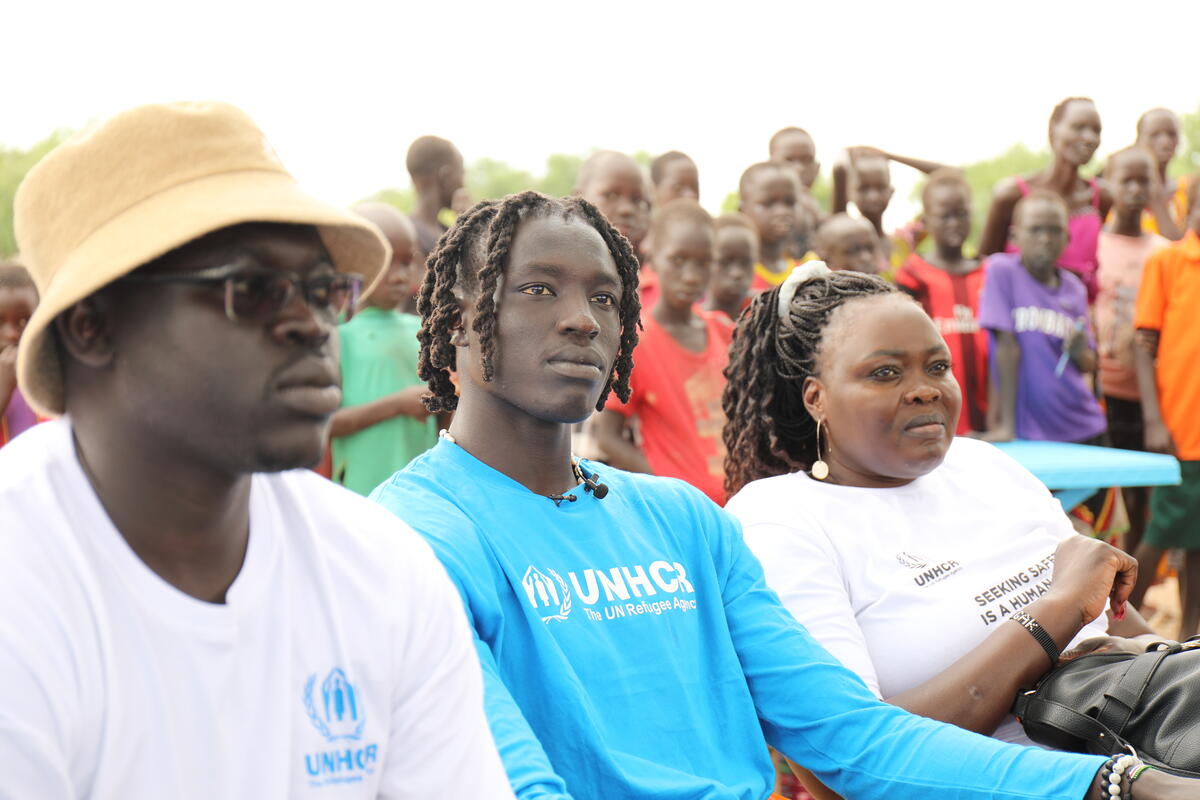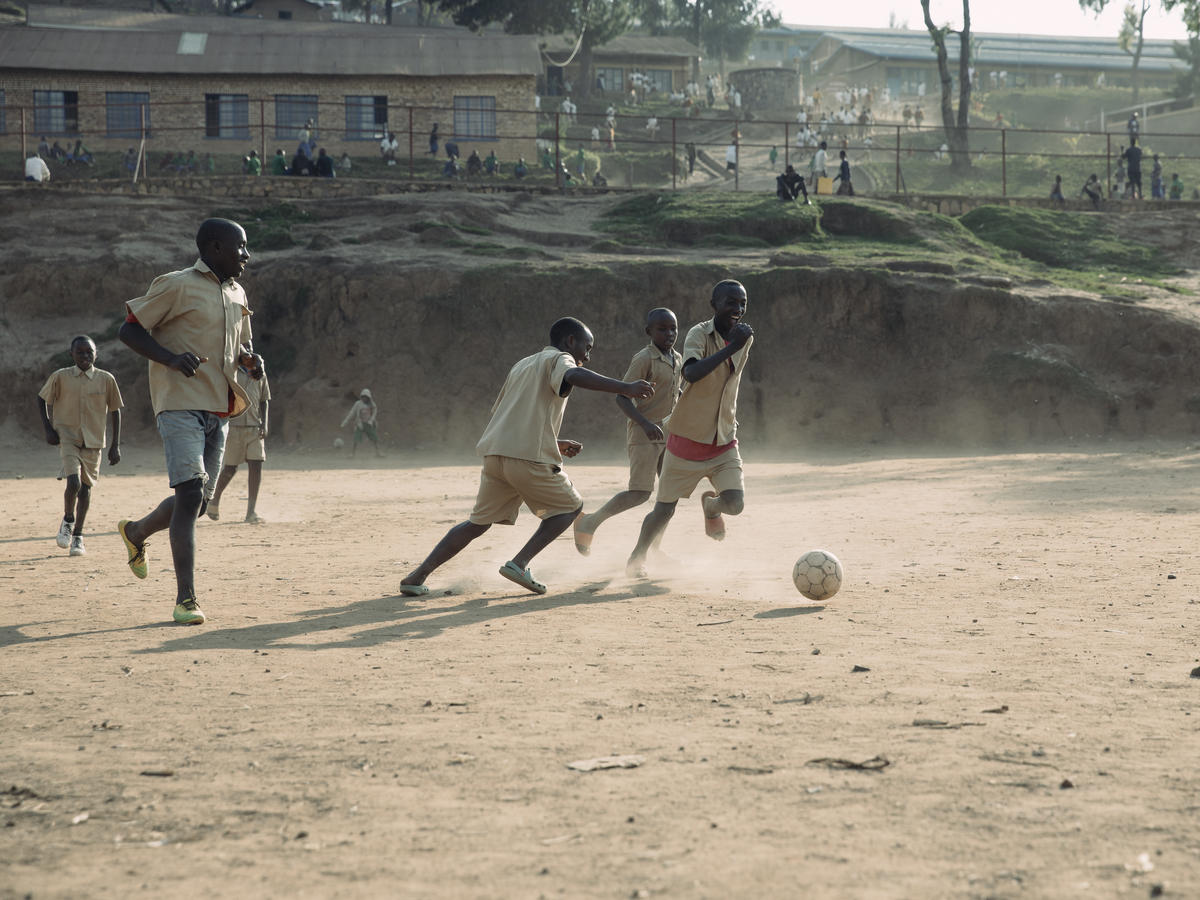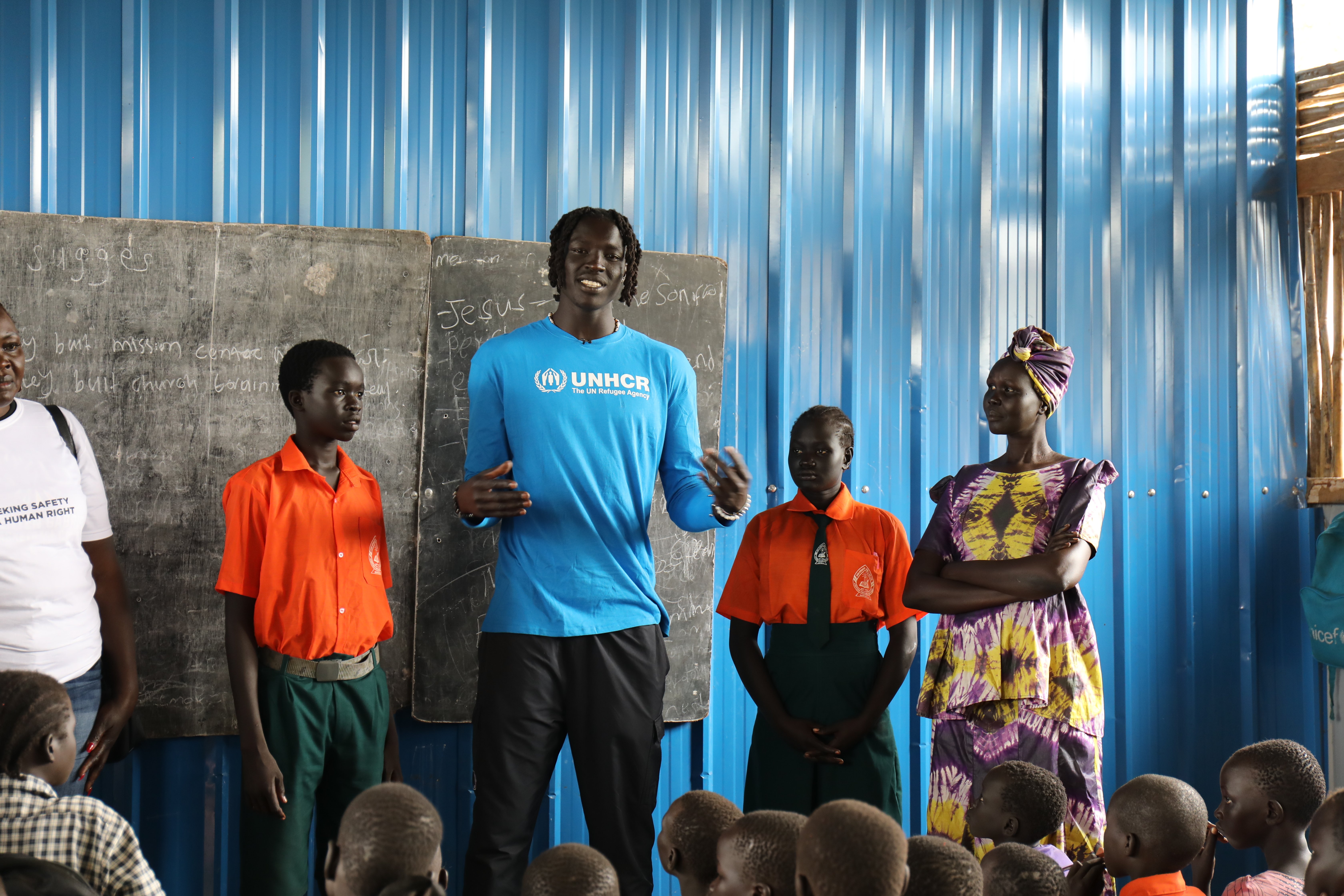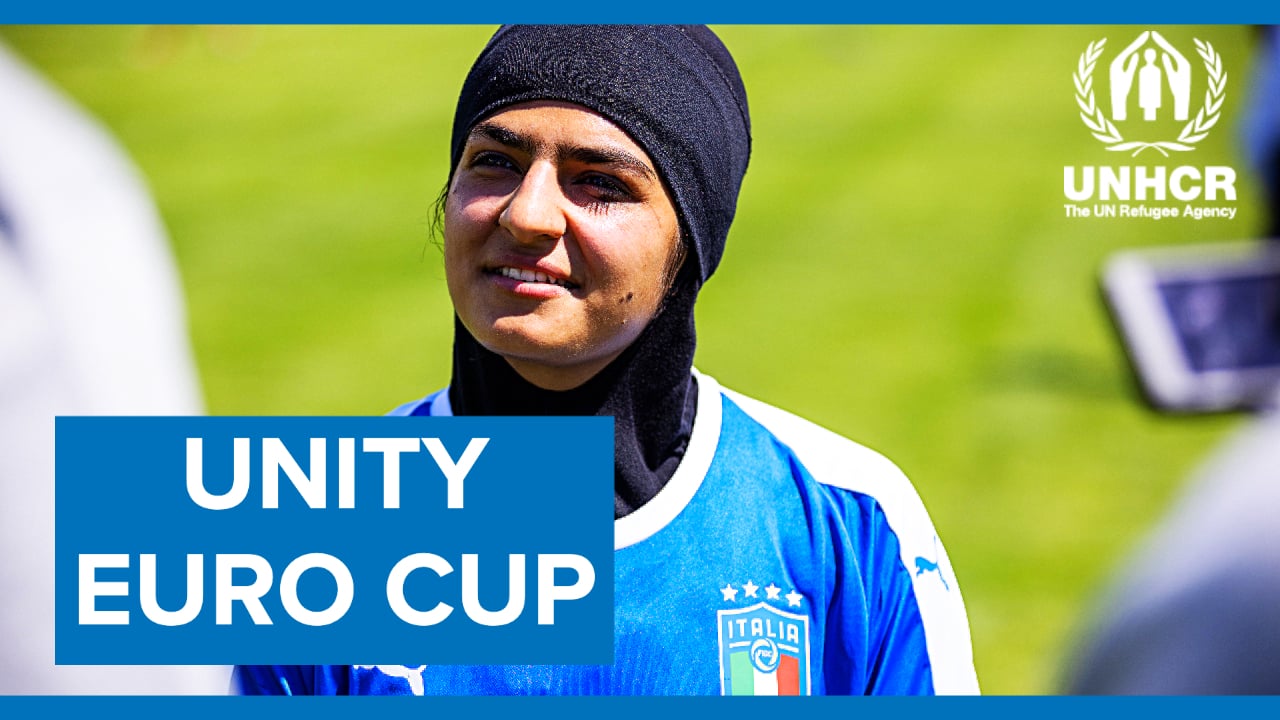Young Bhutanese refugees catch World Cup fever
Young Bhutanese refugees catch World Cup fever

KHUDUNABARI CAMP, Nepal, June 9 (UNHCR) - The young Bhutanese refugees at Khudunabari camp in eastern Nepal have caught World Cup fever and are staging their own two-week soccer tournament while the real thing goes on in Germany.
The hosts Germany were due to kick off the World Cup on Friday with a match against Costa Rica in Munich. The more modest Khudunabari tourney began on June 5 to coincide with World Environment Day and will end on June 20 - World Refugee Day. And unlike the global event, girls are welcome to play.
Located 15 kilometres from the Indian border on the plains of eastern Nepal, Khudunabari might seem an unlikely place for soccer mania. But the young refugees in this and other nearby camps have embraced the beautiful game and are indulging in their passion for it with the help of UNHCR.
"The objective for the tournament is to give the youth hope for a better future and use their energy towards positive actions such as promoting peace and tranquillity in the camp," said one young refugee, Ganga Chetri.
And aside from having a good time, the organisers hope participants will make new friends, develop self-esteem and think positively about their future chances for repatriation to Bhutan or resettlement in third countries.
"We hope that this initiative will help the youth to be engaged in positive activities in the camps," said Kaoru Nemoto, head of the UNHCR sub-office in the nearby town of Damak. "This will contribute to their dignity and self-esteem, as well as improve the social climate in the camps," she added.
Heavy monsoon rains failed to dampen the enthusiasm of the scores of refugees who turned up on June 5 to watch their teams in the tournament's opening match on a patchy camp pitch. Clad in old jerseys and worn-out shoes, or barefoot, the budding Beckhams from Bhutan thrilled the crowds with their silky skills.
Banners outlining possible solutions for the future of the refugees, many of whom have been here for 16 years, lined the pitch, while children performed skits at half-time. Theirs is a hard life, with little to occupy their time and a bleak outlook for most. After completing their lower secondary education in camp schools, only a few win the limited number of scholarships offered each year by the humanitarian network Caritas to pursue higher education in Nepal or India.
"After finishing school we want to do something productive, but as refugees it is so difficult to be recognized as a qualified individual and hired in Nepal," said Ghanasyam Sanyasi, who studies at a local college.
"Frustration has been growing in the camps and we are left with little else to do than to despair about our future after more than 16 years in the camp," he added, echoing the thoughts of many other spectators. Meanwhile, Nepalese law bars refugees from working even if they have a tertiary education.
"Their stay in the camps could be easily brought to an end if Bhutan received them back," said Abraham Abraham, UNHCR representative in Nepal. "Those who do not return could readily be resettled in third countries."
The UN refugee agency helps provide support to around 106,000 Bhutanese refugees - mostly of Nepali origin - who have been sheltering in seven camps in eastern Nepal since the early 1990s. Despite 15 rounds of bilateral negotiations between Nepal and Bhutan since 1993, not a single refugee has returned.
UNHCR, working with the UN World Food Programme and non-governmental organisations, is trying to keep the youth in the camps engaged through vocational training. It also runs programmes targeting school drop-outs and overage students.
"Sports can bring some normality to their lives and offer a positive way for young refugees to channel their energy and confidence that is needed to retain their hope for a lasting solution to their prolonged stay in the camps," said Abraham.
By Nini Gurung in Khudunabari, Nepal


